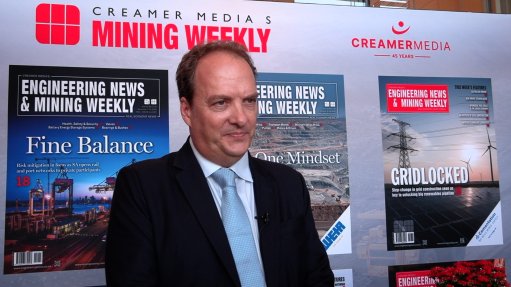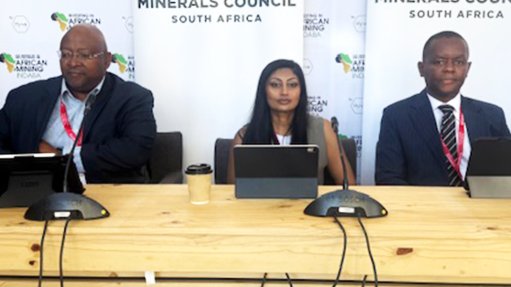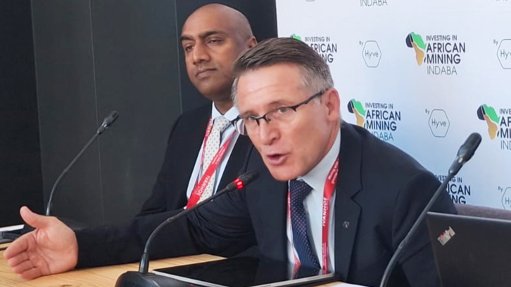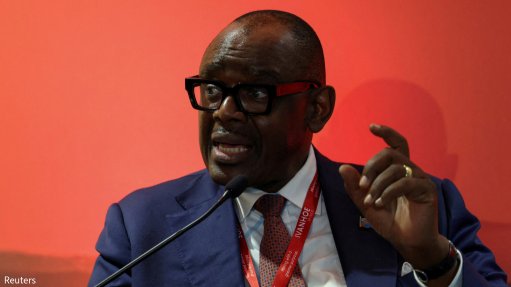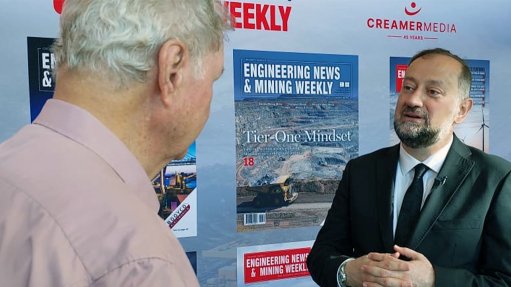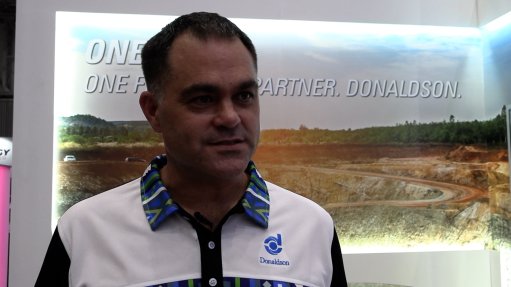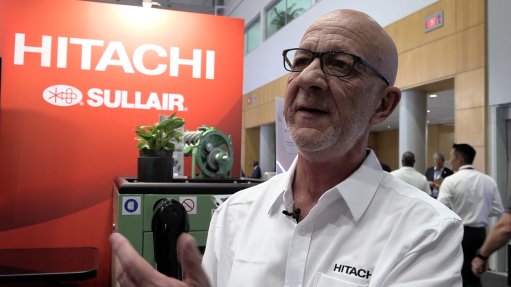Firms target refineries’ upgrade ambitions

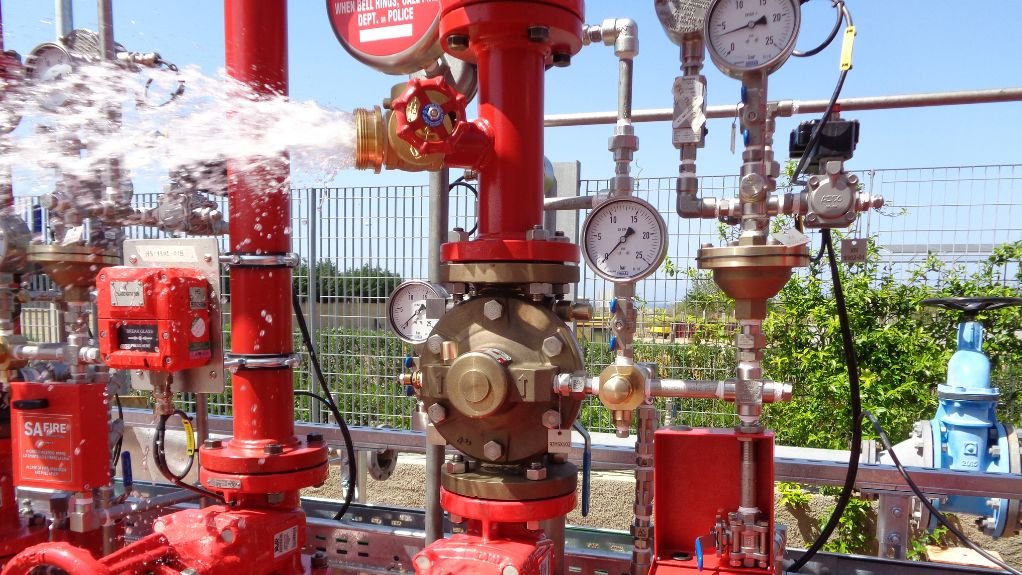
COMMON HAZARDS Common hazards in refineries include jet fires from pressurised leaks, spray fires from joints, and pool fires caused by spills
South African fire protection equipment supplier DoseTech has partnered with Italian company SA Fire Protection to provide African refineries with advanced fire protection systems as the sector modernises to meet new standards and strengthen fuel security.
This partnership combines SA Fire Protection’s engineering expertise with DoseTech’s local support capabilities, ensuring reliable implementation in challenging environments.
DoseTech acts as a local distributor and integrator, ensuring that SA Fire Protection’s monitors, deluge systems and valves are installed, maintained and supported to meet the demanding conditions of the region.
DoseTech offers products designed to protect high-risk zones such as pumpstations, tank farms, loading bays and process units.
“Our systems are engineered for rapid, large-scale water or water-and-foam suppression. They are critical in areas where fast, decisive action is needed to prevent escalation,” says SA Fire Protection business development manager Sharé Mason.
An important focus is the company’s firefighting monitors, available in bronze or stainless steel. They are also offered in manual, electric and electrohydraulic versions, and deliver long throw ranges and precise flow control.
“They allow operators to cool critical equipment, put out spill fires or shield nearby structures, [thereby preventing them] from catching fire — all from a safe distance,” she explains.
Refinery upgrades increase fire risk because of mixed infrastructure, new process flows and construction activity.
“Temporary layouts can create bottlenecks or ignition points. That is why we deploy modular deluge skids and strategically placed monitors that can be integrated into existing systems as work progresses.”
This approach keeps vulnerable areas protected during transitional phases, reducing downtime and improving safety, adds Mason.
Common hazards in refineries include jet fires from pressurised leaks, spray fires from joints and pool fires caused by spills. Deluge systems deliver immediate, wide-area cooling and extinguishing to prevent equipment failure, while monitors provide targeted suppression to stop a fire from spreading.
“Deluge valves are triggered automatically or manually to cover fixed zones, while monitors allow [for] flexible response to changing fire patterns. Together, they provide a strong layer of protection,” she says.
Further, SA Fire Protection designs its systems to meet strict international safety standards. These include those stipulated by the National Fire Protection Association, the American Petroleum Institute, European Standards, Safety Integrity Level standards, and NORSOK standards for offshore structures. The company also boasts certifications from Underwriters Laboratories and approvals from accreditation organisations Det Norske Veritas and Lloyd’s Register.
“Materials and components are tested for corrosion resistance, flow performance and operational reliability, which is critical in harsh African environments,” Mason notes.
The company also works closely with refinery safety teams on design, installation and maintenance. Its manufacturing base, in Italy, ensures strict quality control, while local service teams provide inspection and compliance support to maintain system readiness.
Mason says African refineries often struggle with outdated suppression systems, limited spares and inconsistent maintenance: “We address these challenges with modular solutions for faster installation and locally supported maintenance programmes. Our aim is to keep systems operational and compliant, even in difficult conditions”.
As refineries upgrade to produce cleaner fuels, fire safety remains a priority.
“We are constantly improving actuation systems, corrosion resistance and monitor ergonomics.”
Mason concludes that SA Fire Protection’s goal is to provide reliable, innovative fire protection so that clients can operate with confidence during and after modernisation.
Article Enquiry
Email Article
Save Article
Feedback
To advertise email advertising@creamermedia.co.za or click here
Press Office
Announcements
What's On
Subscribe to improve your user experience...
Option 1 (equivalent of R125 a month):
Receive a weekly copy of Creamer Media's Engineering News & Mining Weekly magazine
(print copy for those in South Africa and e-magazine for those outside of South Africa)
Receive daily email newsletters
Access to full search results
Access archive of magazine back copies
Access to Projects in Progress
Access to ONE Research Report of your choice in PDF format
Option 2 (equivalent of R375 a month):
All benefits from Option 1
PLUS
Access to Creamer Media's Research Channel Africa for ALL Research Reports, in PDF format, on various industrial and mining sectors
including Electricity; Water; Energy Transition; Hydrogen; Roads, Rail and Ports; Coal; Gold; Platinum; Battery Metals; etc.
Already a subscriber?
Forgotten your password?
Receive weekly copy of Creamer Media's Engineering News & Mining Weekly magazine (print copy for those in South Africa and e-magazine for those outside of South Africa)
➕
Recieve daily email newsletters
➕
Access to full search results
➕
Access archive of magazine back copies
➕
Access to Projects in Progress
➕
Access to ONE Research Report of your choice in PDF format
RESEARCH CHANNEL AFRICA
R4500 (equivalent of R375 a month)
SUBSCRIBEAll benefits from Option 1
➕
Access to Creamer Media's Research Channel Africa for ALL Research Reports on various industrial and mining sectors, in PDF format, including on:
Electricity
➕
Water
➕
Energy Transition
➕
Hydrogen
➕
Roads, Rail and Ports
➕
Coal
➕
Gold
➕
Platinum
➕
Battery Metals
➕
etc.
Receive all benefits from Option 1 or Option 2 delivered to numerous people at your company
➕
Multiple User names and Passwords for simultaneous log-ins
➕
Intranet integration access to all in your organisation









